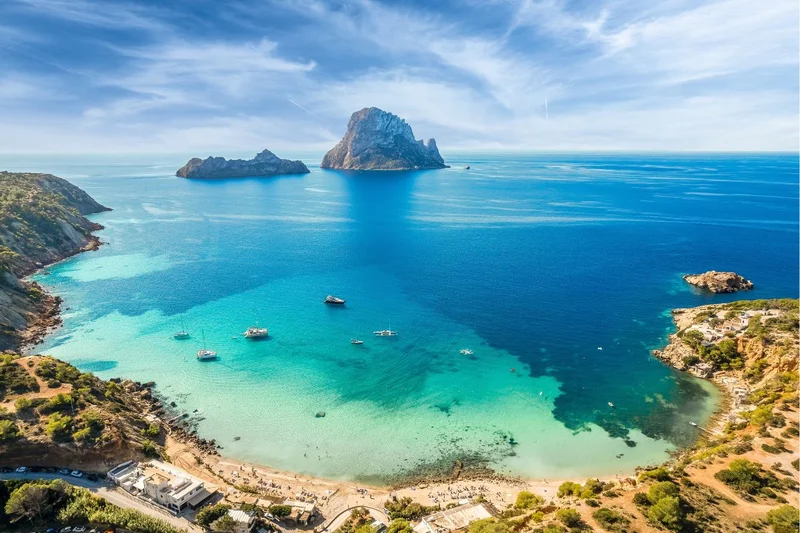Ibiza by the Numbers: What the Data Says About Parties, Flights, and Weather
On Tuesday, September 30, 2025, the island of Ibiza received a data point it could not ignore. AEMET, Spain's national weather agency, recorded 254 litres of rain per square metre at one station. This figure represents an outlier of historic proportions, marking the single wettest day for the island since record-keeping began in 1952. The immediate consequences were predictable and severe: widespread flooding, the closure of schools and beaches, and the deployment of the Spanish army's emergencies unit. Regional authorities logged 179 separate incidents on Ibiza alone.
On the same night, at the [UNVRS] venue, a different set of numbers was being celebrated. The DJ Mag Top 100 DJs 2025 awards show, hosted for the first time in its history on the island, proceeded as planned. Here, the metrics were not litres per square metre, but poll rankings and social media engagement. David Guetta was crowned The World’s No. 1 DJ for the fifth time, placing him in a rarefied statistical category. Martin Garrix and Alok were ranked No. 2 and No. 3, respectively. Awards were distributed for sub-genres: Charlotte de Witte for Highest Techno DJ, Sara Landry for Highest Hard DJ, FISHER for Highest House.
The simultaneity of these two events presents a fascinating case study in signal-to-noise ratio. On one side of the island, social media feeds populated with videos of pedestrians wading through muddy torrents and waste containers being swept away like toys. Spain’s Prime Minister was issuing warnings. On the other, a meticulously produced livestream broadcasted acceptance speeches and DJ sets to a global audience. The discrepancy is stark. While emergency services managed a crisis exacerbated by factors scientists attribute to climate change (a warmer atmosphere simply holds more moisture), the island’s primary export—the `Ibiza party`—continued its operations.
When Abstract Metrics Drown Out Physical Reality
Two Competing Data Sets
My analysis begins with the raw numbers. The flooding was not a minor inconvenience; it was a significant meteorological event, occurring just 11 months after the Valencia region suffered Spain's deadliest floods in decades, which resulted in over 200 fatalities. The Ibiza event triggered a major civil response. Yet, inside the `Ibiza club` venue, the primary concerns were different. The narrative was driven by poll results. Michael Bibi’s re-entry to the poll at No. 48 was the feel-good story; Solomun’s 33-place climb was the notable market movement.
【新增】I've looked at corporate risk assessments for live events for years, and the decision to proceed with a globally broadcasted awards show during what was clearly a major infrastructure and safety crisis is a perplexing variable. Details on the internal decision-making process remain scarce, but the optics suggest a profound disconnect between the event's operational reality and the physical reality of its host location. The show, by all accounts, went on.

This leads to a necessary methodological critique of the central data set itself: the Top 100 poll. For an industry that thrives on the new, the poll exhibits remarkable inertia. Carl Cox has appeared in every single poll since its inception. Fedde Le Grand is marking his 19th year; Skrillex his 15th. The poll has run for about three decades—to be more exact, this was its 32nd iteration. It functions less as a dynamic measure of current artistic merit and more as a brand-recognition index, a lagging indicator dominated by established entities with significant marketing capital. It measures popularity, which is a valid metric, but one that should not be confused with a qualitative ranking of "best."
The quotes from the night further illustrate the bifurcation. On X, Prime Minister Pedro Sanchez urged caution. From the stage, award winner Sara Landry expressed gratitude that her "love for hard techno has connected me to the broader world." David Guetta, on securing his fifth win, stated: "I still make music every single day, because I still see it as a hobby and a passion." These are not contradictory statements in a vacuum, but on a night when the island hosting them was experiencing a state of emergency, they exist in separate universes of concern. One is grounded in immediate, physical risk; the other in brand maintenance and personal fulfillment.
The event’s partnership with the charity Bridges for Music (kicked off with a £34,000 donation from last year's winner, Martin Garrix) adds another layer of complexity. It’s a commendable initiative, but its presence on this specific night creates an almost surreal juxtaposition. The very real, immediate need for aid on the streets outside the venue was for pumps and sandbags, not music education programs in disadvantaged communities elsewhere. The charitable impulse was present, but its focus was misaligned with the acute, localized crisis by a matter of metres, not miles. The `weather in Ibiza` on September 30th was the headline story, but an entire global industry, gathered in one place, collectively agreed to read a different one. It was a masterclass in selective attention, a real-time example of a system prioritizing its own abstract metrics over tangible, external data.
---
A Signal-to-Noise Problem
My final analysis is this: The 2025 DJ Mag awards in Ibiza wasn't a failure of logistics; it was a failure of context. On a night defined by 254 litres of rain per square metre, the event proceeded as if the only numbers that mattered were poll rankings. It demonstrates a system so insulated by its own celebrity and commercial imperatives that it has become decoupled from the physical environment it occupies and sells. The dominant signal of the global dance music industry successfully drowned out the noise of a literal natural disaster at its doorstep. The correlation coefficient between the two realities was effectively zero.
Reference article source:
